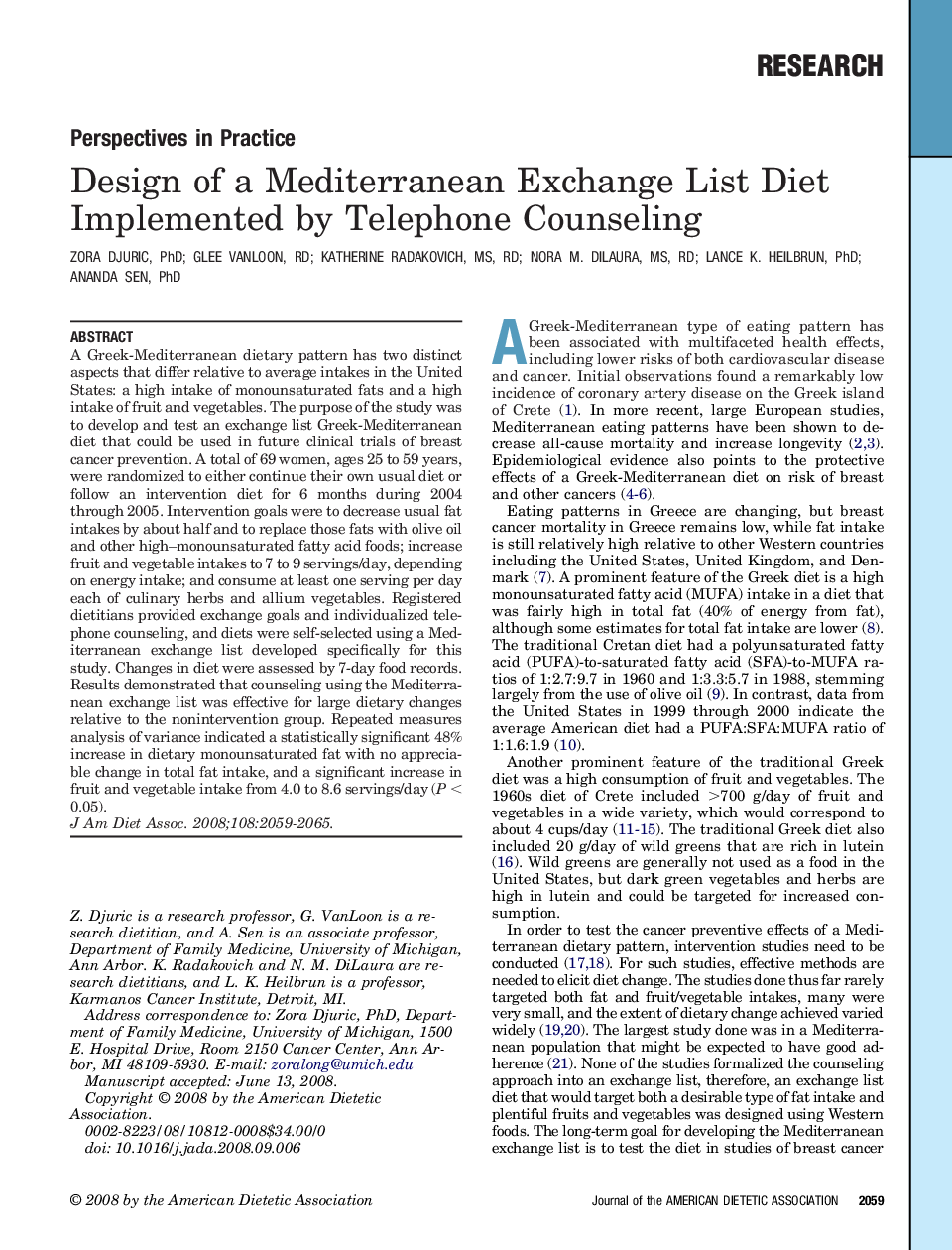| Article ID | Journal | Published Year | Pages | File Type |
|---|---|---|---|---|
| 2654298 | Journal of the American Dietetic Association | 2008 | 7 Pages |
A Greek-Mediterranean dietary pattern has two distinct aspects that differ relative to average intakes in the United States: a high intake of monounsaturated fats and a high intake of fruit and vegetables. The purpose of the study was to develop and test an exchange list Greek-Mediterranean diet that could be used in future clinical trials of breast cancer prevention. A total of 69 women, ages 25 to 59 years, were randomized to either continue their own usual diet or follow an intervention diet for 6 months during 2004 through 2005. Intervention goals were to decrease usual fat intakes by about half and to replace those fats with olive oil and other high–monounsaturated fatty acid foods; increase fruit and vegetable intakes to 7 to 9 servings/day, depending on energy intake; and consume at least one serving per day each of culinary herbs and allium vegetables. Registered dietitians provided exchange goals and individualized telephone counseling, and diets were self-selected using a Mediterranean exchange list developed specifically for this study. Changes in diet were assessed by 7-day food records. Results demonstrated that counseling using the Mediterranean exchange list was effective for large dietary changes relative to the nonintervention group. Repeated measures analysis of variance indicated a statistically significant 48% increase in dietary monounsaturated fat with no appreciable change in total fat intake, and a significant increase in fruit and vegetable intake from 4.0 to 8.6 servings/day (P < 0.05).
